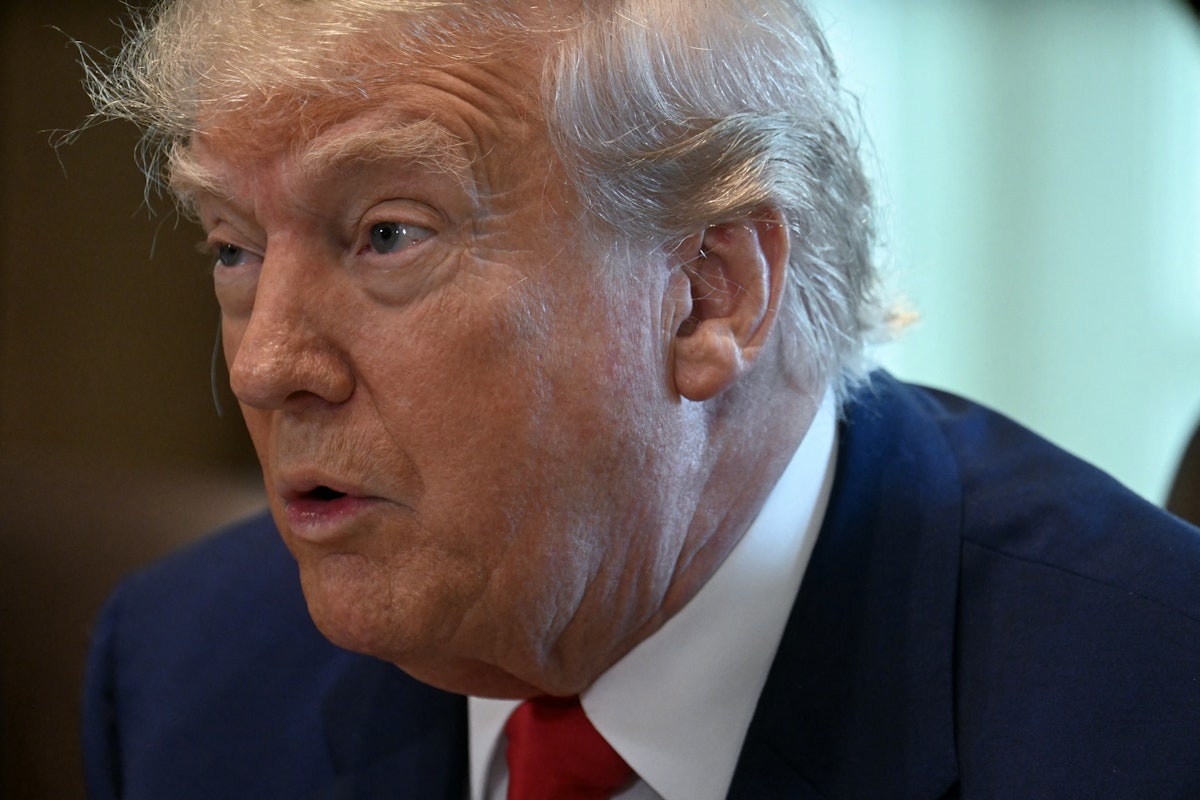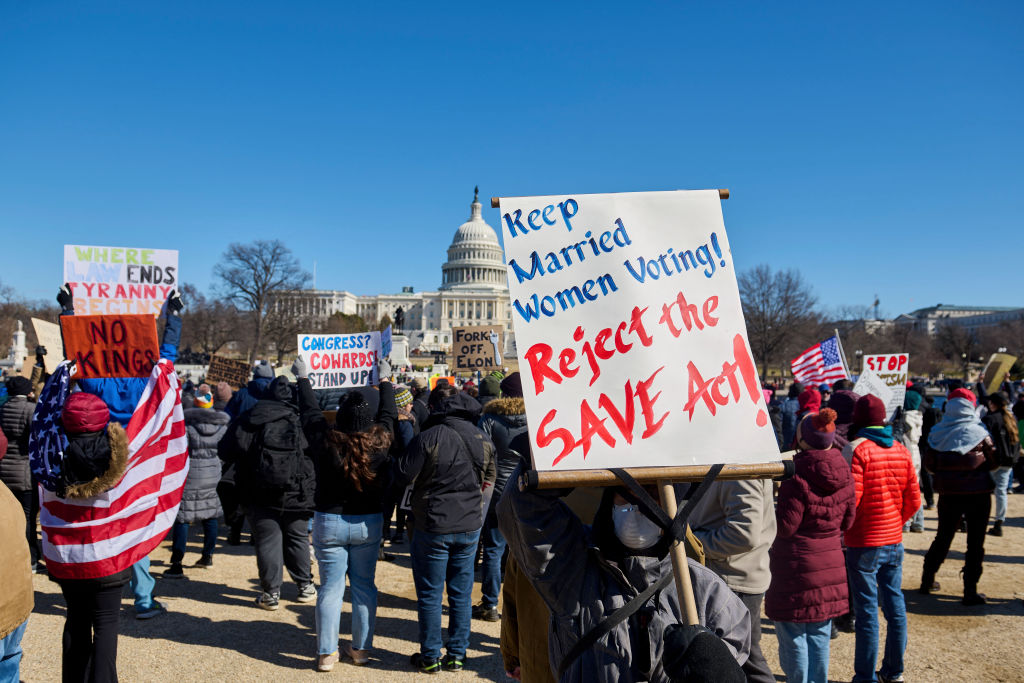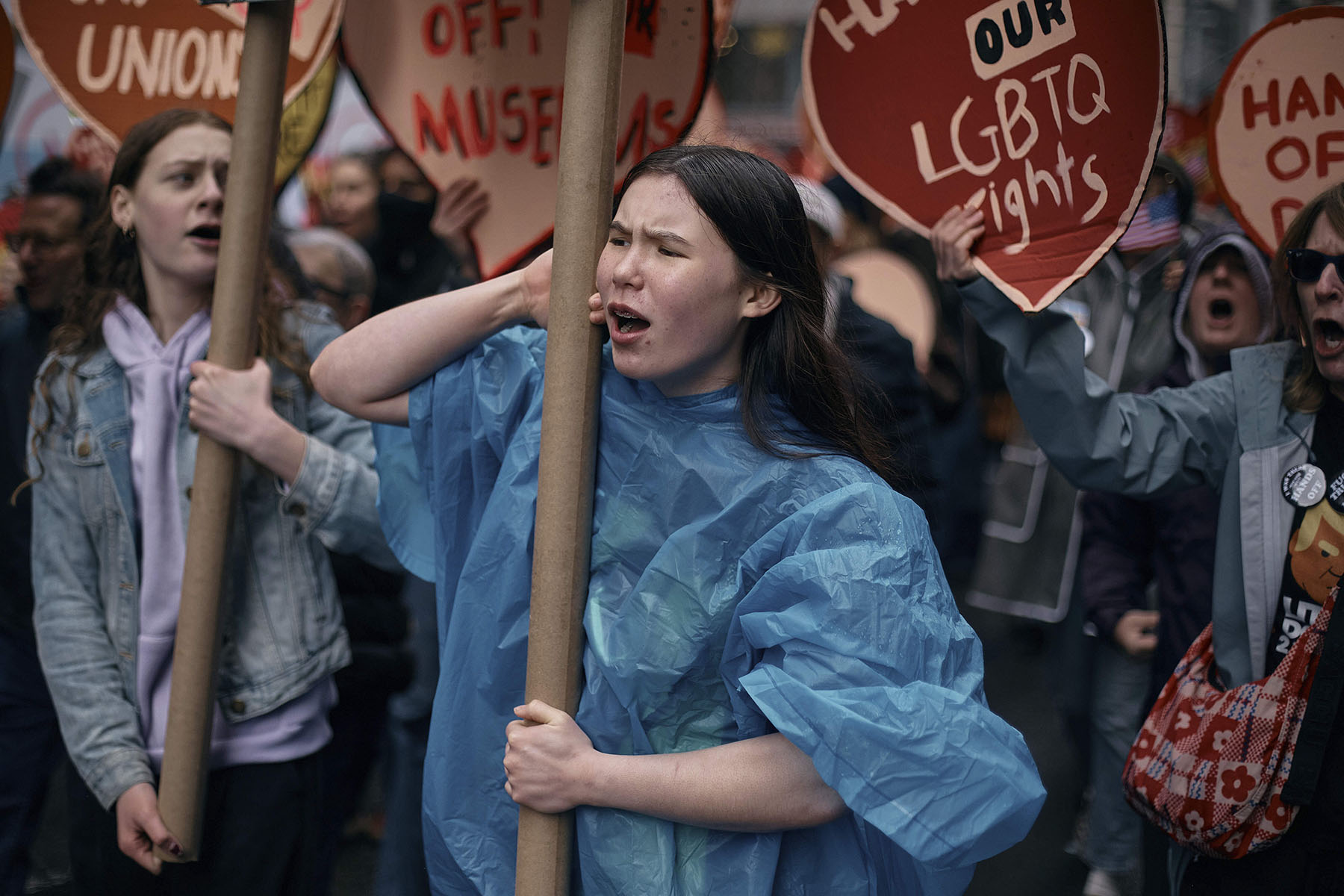
Trump Threatens New York Times Amid Crazed Rant Over His Own Lawsuits
April 30, 2025
War on Women Report: Trump Slashes Sexual Violence Prevention; GOP Targets Teens’ Repro Rights; Nebraska Abortion Funeral Bill Threatens Miscarriage Care
April 30, 2025This column first appeared in The Amendment, a biweekly newsletter by Errin Haines, The 19th’s editor-at-large. Subscribe today to get early access to her analysis.
In the first 100 days of Donald Trump’s second term in office, we have seen an American president attempting to swiftly and dramatically reshape our culture and our country, in an effort to redefine who and what makes America great.
He’s largely done this through a slew of executive orders that are not new laws, but directives that are already being followed and implemented by federal agencies, universities, state governments and school districts. But these orders are also being challenged in our courts, and in the court of public opinion, as millions of Americans have begun to take to the streets in protest of the Trump administration’s agenda.
At this milestone in Trump’s tenure, the politics of exclusion and erasure are defining his presidency.
“This was always about dismantling the multiracial freedom project,” said Brittany Cooper, author and a professor of women’s, gender and sexuality studies and Africana studies at Rutgers University. “We had some notable wins. This administration sees those wins as a series of historical missteps that they now have endless power to undo.”
There are consequences for the people on the receiving end of the president’s actions and rhetoric. Many Americans, including women, people of color and the LGBTQ+ community, are grappling with how Trump’s policies are transforming workplaces and institutions, setting new legal precedent and undoing established ones.
In January, I wrote about the Americans Trump and his administration are trying to leave out. These are the people I wanted to speak to at the 100-day mark of his presidency, to hear from them about why what Trump is doing matters, if it has changed their relationship to our democracy, and how his actions are already affecting their lives.
For more than a generation, My Brother’s Keeper has focused on reducing health disparities, particularly for people with HIV. Based in Ridgeland, Mississippi, the organization typically processes 8,000 tests a year for sexually transmitted diseases (STDs) across the state, many for people without health insurance.
In the last month Dr. June Gipson, the CEO of My Brother’s Keeper, has received letters from both state and federal agencies informing her that her organization would lose millions in funding. She is now scrambling to figure out how to keep the tests available and affordable to the patients who need it, in a state that consistently has some of the highest STD rates in the country.
“We don’t want to leave the communities without any resources,” said Gipson. “We pivoted the last time Trump was in office. We know how to pivot. But now we’re just left scrambling because all the rules have changed. Unchecked STDs are going to be a huge problem for us, particularly in the South. This is not making America great again.”
For Gipson, the mental strain of the last several weeks — mourning the progress that could have been made with the federal funding that has now disappeared as she considers the toll this will take on the community — has been difficult personally and professionally.
“There’s so many conflicting and compounding issues,” Gipson said. “I can’t catch my breath and even talk to people about what’s happening. You don’t even know how something is affecting you, because every day there’s something else on top of you.”

(Andres Kudacki/AP)
Trans journalist Imara Jones wasn’t surprised to see all of the actions the administration has taken against transgender Americans, but she does describe the actual experience as “disorienting.”
“It’s one thing to know these things are going to happen; it’s another thing to experience them happening,” said Jones, the creator of TransLash Media. “It is reality-altering.”
Jones likened the swiftness and scope of the administration’s executive orders targeting the transgender community to the Supreme Court’s decision to end federal protections for abortion in 2022 and the chaos and uncertainty that was unleashed in the weeks and months since the decision.
“One day you largely assume you can get access to the health care you need. The next … it’s all in jeopardy. It’s this cascading impact on what you understand to be. It’s like a Dobbs ruling every other day.”
Cooper said Trump’s targeting of “wokeism”; taking aim at transgender Americans; attempting to ban pronouns; or scrap diversity, equity and inclusion efforts in government and society all point to a vision of “the most reductive, most limited, most basic version of America that we have been.” She pointed out that the rejection of “wokeness” in particular is a code word for embracing the vision of Black women.
“We have tried mightily to become different,” Cooper said. “The only purpose we serve in his imagination of the world is one where we are in service.”
Headed into the next phase of Trump’s presidency, there are already signs that not everyone is on board with his agenda, and that he does not have the mandate he has touted since his election to reshape the country in his image.
A Pew Research poll conducted this month showed Trump’s approval rating at 40 percent, down seven points from February. And more than half of Americans said he is setting too much policy via executive order.
Americans are showing up and speaking out at congressional town halls hosted by members of both parties, standing up for their neighbors as the administration attempts to deport immigrants they say are in the country illegally, and protesting in communities across the country.
After weeks of being horrified by headlines about the administration’s actions, Lora Weingarden decided to attend her first protest at the April 19 #HandsOff rally in Livonia, Michigan. The 64-year-old, who works as a lawyer for the state, said she is particularly concerned about the future of the rule of law in American democracy.
“As a lawyer, we’re trained in the Constitution,” Weingarden said. “We know what the rules are. There have always been consequences for defying the Constitution. If anyone gets away with violating a court order, we will live in a lawless society. I’m fearful we won’t recognize our country.”
She made a couple of signs, one reading, “WHERE IS THE DUE PROCESS?” and another, “GOP CONGRESS STEP UP — NOW!” Weingarden invited former colleagues, friends from her cardio drumming group, her tennis and pickleball teammates, and her husband to come along. She showed up with nine friends in tow.
“I want the public to know, I want the government to know that the regular people are not going to stand for what’s going on,” she said. “The more protesters we have, the stronger the message is.”
Weingarden described the experience of gathering with like-minded people, of hearing horns honking in support as people drove past the protest, as “exhilarating.” She plans to keep protesting.
“The message has to be loud and clear over time,” Weingarden said. “It’s not a hard thing to do. As citizens opposed to what’s going on, we have to band together to send a message.”
Whether the president sees them or not, these Americans are here, asserting their claim to what makes America great as participants in our democracy. Beyond resisting, they are fighting for recognition, for the right to be counted and not erased.
The lesson of these first 100 days: Theirs is a fight that is just beginning.
Great Job Errin Haines & the Team @ The 19th Source link for sharing this story.





